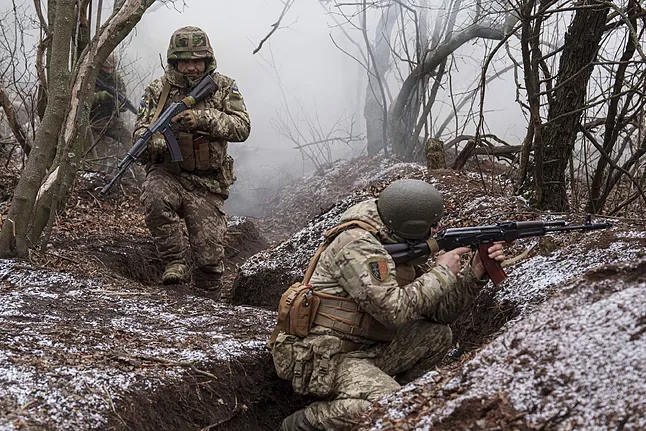One month before the third anniversary of the war in Ukraine, newly elected President of the United States, Donald Trump, who during his presidential campaign stated he would end this conflict in 24 hours, threatens Russia with new sanctions if Moscow does not negotiate and considers the possibility of continuing military aid to Kiev.
"We are talking to Zelenski," he stated. "We will speak very soon with President Putin and we will see what happens," Trump said at a press conference at the White House.
The new president has changed his tone regarding the war in Ukraine. Not only from his campaign but also as president when he mentioned that Russia would head towards disaster if they do not negotiate to achieve a ceasefire, immediately shifting to talk about imposing new sanctions. Meanwhile, the Russian president hopes that his American counterpart abandons Ukraine before the Russian economy runs out.
On another note, two generals and a colonel from the Ukrainian Army have been arrested for alleged negligence in defending the border area of Kharkiv, which Russia captured last May.
European Commissioner for Economy and Productivity, Valdis Dombrovskis, proposed on Wednesday forming a "democracy alliance," including the United States led by Donald Trump, against an "axis of autocracies" that Russia under Putin seeks to form.
"We must look beyond Russia. If an axis of autocracies is forming, it is important that we also have a democracy alliance to counter it. Cooperation with the United States and other partners in the G7 and other forums will be critical," he stated at a panel organized within the framework of the World Economic Forum in Davos focused on relations with Russia, as reported by Efe.
The former Latvian Prime Minister emphasized that "Russia is not alone" and "is finding allies," mentioning North Korea, which has already sent troops to the Kremlin's war against Ukraine, and Iran, a supplier of military systems like drones to Moscow.
In this context, Dombrovskis reiterated that the EU will advocate for "working together" and increasing "cooperation" with the new U.S. administration, adding that this collaboration should also extend to responding to Russian aggression towards Ukraine.
